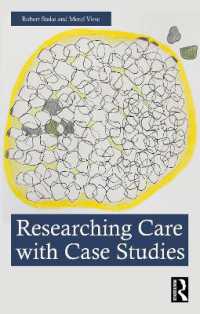Full Description
In Malicious Deceivers, Ioana B. Jucan traces a genealogy of post-truth intimately tied to globalizing modernity and connects the production of repeatable fakeness with capitalism and Cartesian metaphysics. Through case studies that cross times and geographies, the book unpacks the notion of fakeness through the related logics of dissimulation (deception) and simulation (performativity) as seen with software/AI, television, plastics, and the internet. Specifically, Jucan shows how these (dis)simulation machines and performative objects construct impoverished pictures of the world, ensuring a repeatable sameness through processes of hollowing out embodied histories and lived experience.
Through both its methodology and its subjects-objects of study, the book further seeks ways to counter the abstracting mode of thinking and the processes of voiding performed by the twinning of Cartesian metaphysics and global capitalism. Enacting a model of creative scholarship rooted in the tradition of writing as performance, Jucan, a multimedia performance-maker and theater director, uses the embodied "I" as a framing and situating device for the book and its sites of investigation. In this way, she aims to counter the Cartesian voiding of the thinking "I" and to enact a different kind of relationship between self and world from the one posited by Descartes and replayed in much Western philosophical and — more broadly — academic writing: a relationship of separation that situates the "I" on a pedestal of abstraction that voids it of its embodied histories and fails to account for its positionality within a socio-historical context and the operations of power that define it.
Contents
Prologue: Beginning Philosophy
1. Enter the Malicious Deceiver
2. (Dis)simulating Thinking Machines
Interlude: Auto-History
3. Synthetica: (Un)picturing Plastic Worlds
4. On Circulation: Virality and Internet Performances
Epilogue: Notes Toward a Living Practice








